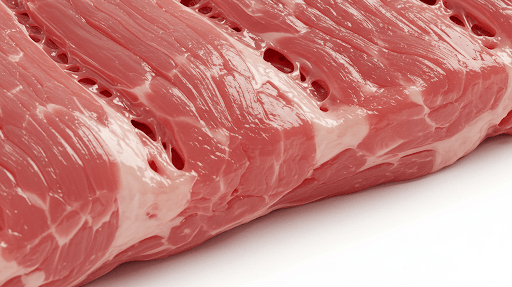UK Startup 3D Bio-Tissues eliminating fetal bovine serum
SUSTAINABILITYALTERNATIVE PROTEINS


This is an AI generated illustration and does not represent actual product or service.
In 2019, 3D Bio-Tissues Ltd., a biotech startup spun out from Newcastle University, emerged as a key player in the cellular agriculture sector. Fully owned by BSF Enterprise, a listed investment company, the firm has developed an innovation patent pending (WO2025083418A2) methods to cultivate animal biomass—including meat, skin, and hide—without the ethical and environmental drawbacks of traditional livestock farming.
With global demand for sustainable alternatives to conventional animal products rising, 3D Bio-Tissues’ innovation addresses critical challenges in cost, scalability, and serum dependency, positioning it at the forefront of the cultivated meat and leather industries.
The Challenge: High Costs and Serum Dependency
Cultivated biomass—grown from animal cells in vitro—offers a promising solution to issues like environmental degradation, animal welfare concerns, and resource inefficiency. However, production costs remain a major barrier, with growth media accounting for 55-95% of total expenses.
A key bottleneck is the reliance on fetal bovine serum (FBS), an expensive, ethically contentious, and batch-variable component. While serum-free alternatives exist, they often underperform. Additionally, scaffold-based cultivation faces limitations in nutrient diffusion and biocompatibility.
The Solution: Optimized Co-Culturing Techniques
3D Bio-Tissues’ patent outlines a novel co-culturing approach that enhances cell proliferation and tissue formation while reducing or eliminating serum dependency. The method involves:
1. Muscle-Fat Co-Cultures for Meat Production
Cell Ratios: Myocytes (muscle cells) and adipocytes (fat cells) are co-cultured at an optimal ratio of 13:1 to 49:1, with 19:1 (95:5) being particularly effective
Serum-Free Enhancement: The addition of macromolecular crowding (MMC) agents (e.g., PVP, PEG, carrageenan) significantly boosts cell growth in serum-free conditions
Results:
Increased proliferation and higher biomass yields.
Structural integrity resembling marbled meat.
2. Skin-Fat Co-Cultures for Leather Alternatives
Cell Ratios: Fibroblasts (skin cells) and adipocytes are combined at 9:1 to 99:1, with 95:5 showing superior collagen and protein production
Applications: Cultivated skin and hide with enhanced mechanical properties.
3. Scaffold-Free 3D Tissue Growth
The company’s scaffold-free approach allows cells to self-organize into multicellular monolayers or aggregates, reducing complexity and cost.
Cellular substrates (e.g., fibroblast layers) further improve tissue formation.
Key Advantages Over Existing Methods
✔ Cost Reduction: Serum-free media with MMC agents cut production expenses.
✔ Scalability: High-density cell seeding enables industrial-scale output.
✔ Ethical & Sustainable: Eliminates FBS, avoids animal slaughter, and reduces environmental impact.
✔ Superior Product Quality: Co-cultured tissues exhibit better texture, marbling, and structural integrity than monoculture alternatives.
Market Potential and Future Applications
The global cultivated meat market is projected to reach $25 billion by 2030, while lab-grown leather is gaining traction in fashion and automotive industries. 3D Bio-Tissues’ technology is working to serve these markets with:
Slaughter-free steaks, burgers, and cold cuts.
Sustainable leather for apparel and upholstery.
Potential expansion into hybrid meat-plant products.
By leveraging optimized cell ratios, serum-free media, and scaffold-free techniques, 3D Bio-Tissues Ltd. has developed a scalable, cost-effective, and ethical solution for cultivated meat and leather production. As regulatory approvals progress and consumer acceptance grows, this innovation could revolutionize the future of food and materials.


